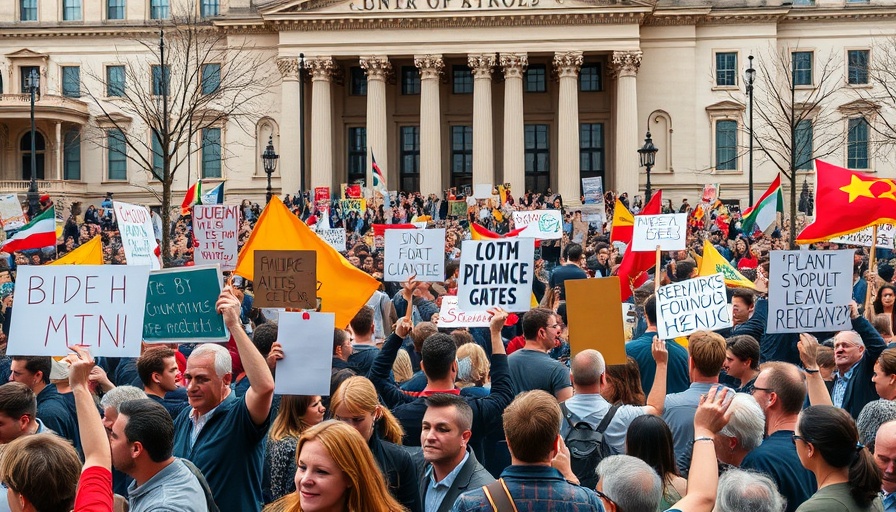
David Mark's Departure: A Signal for the PDP?
The recent resignation of David Mark from the People's Democratic Party (PDP) has raised significant questions regarding the party's stability and future prospects. Mark's long-term loyalty to the PDP and his decision to join a new opposition coalition suggests a deeper malaise within the party—a symptom of disunity that has critical implications not only for the PDP but for Nigeria's democratic landscape. His departure underscores the dissatisfaction among party stalwarts and indicates a crucial juncture as Nigeria prepares for the 2027 elections.
In 'David Mark Resigns from PDP, Joins New Opposition Coalition', the discussion dives into essential themes of political realignment and the implications for democracy in Nigeria, prompting us to analyze the broader context.
The Coalition Landscape: Who Will Lead?
As Mark aligns with a new opposition coalition, this move is not merely strategic but reflective of the broader electoral dynamics at play. With significant figures like Atiku Abubakar also rallying behind this coalition, there's potential for a unified front against the ruling party's administration. However, the success of this coalition faces challenges rooted in past mistakes—particularly the failure to agree on zoning, a contentious issue that fractured previous alliances. A united opposition could present a formidable challenge to President Tinubu, but it hinges on consensus-building to resolve foundational disputes.
Zoning: The Key to Opposition Unity
Unavoidably, the conversation around zoning remains pivotal. Historically, the inability to agree on regional representation has led to fragmentation within opposition parties, which is why critics stress the necessity of a clear zoning strategy moving forward. For instance, political analysts including Catch Onu speculate that if the opposition can successfully zone leadership positions to the South, it may rejuvenate party structures and provide a more cohesive challenge to the incumbent's presidency.
The Role of Inclusion in Nation-Building
Moreover, the emerging dynamics in Nigerian politics accentuate the need for inclusivity. Mark's collaboration with former rivals such as Ralph Arabola signals an acknowledgment of past failures and the importance of building partnerships across diverse political spectrums. Inclusion can pave the way for strategic alliances while addressing the pitfalls of exclusive governance practices which have plagued previous administrations like that of Buhari’s. If opposition leaders can embrace cooperation and unity, they might rekindle public confidence in alternative political platforms.
Conclusion: What Lies Ahead for the PDP and Nigerian Democracy
The implications of David Mark's resignation resonate beyond party lines; they reflect Nigeria's emerging political climate. As the PDP contemplates a renewal of its identities and strategies, the coalition's ability to confront these challenges could dictate not only its survival but also the broader democratic fabric of Nigeria. If the party can regroup and capitalize on the lessons learned from its recent schisms, a revitalized democratic process may yet emerge from the current turbulence.
In closing, the evolving political landscape in Nigeria, coupled with the dynamics of inter-party relations, serves as a reminder of the importance of inclusive, representative governance. As we navigate the complexities ahead, the question remains: Can the PDP and its opposition counterparts leverage this restructuring to build a more robust political future for Nigeria?
 Add Row
Add Row  Add
Add 


 Add Row
Add Row  Add
Add 

Write A Comment